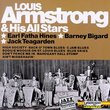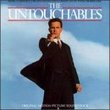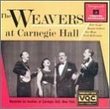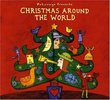| All Artists: Sergey Rachmaninov, Eugene Ormandy, Leopold Stokowski, Philadelphia Orchestra Title: Rachmaninoff Plays Rachmaninoff: The 4 Piano Concertos Members Wishing: 1 Total Copies: 0 Label: RCA Release Date: 8/16/1994 Genre: Classical Styles: Forms & Genres, Concertos, Historical Periods, Modern, 20th, & 21st Century, Instruments, Keyboard Number of Discs: 2 SwapaCD Credits: 2 UPC: 090266165827 |
Search - Sergey Rachmaninov, Eugene Ormandy, Leopold Stokowski :: Rachmaninoff Plays Rachmaninoff: The 4 Piano Concertos
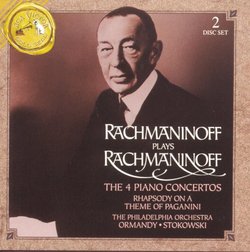 | Sergey Rachmaninov, Eugene Ormandy, Leopold Stokowski Rachmaninoff Plays Rachmaninoff: The 4 Piano Concertos Genre: Classical
Unlike most composer/pianists, Rachmaninoff's instrumental prowess was fully commensurate with his creative gifts. He embraces his youthful First Concertos as if he had encountered an old lover, consumating his passion w... more » |
Larger Image |
CD DetailsSynopsis
Amazon.com Unlike most composer/pianists, Rachmaninoff's instrumental prowess was fully commensurate with his creative gifts. He embraces his youthful First Concertos as if he had encountered an old lover, consumating his passion with stupefying fingerwork in the first movement cadenza. Conversely, the composer seems bored in the Third. He laconically dispatches its torrents of notes, opts for the easier ossias in difficult passages, and makes cuts in the first and third movements. And pianists like Arturo Michelangeli and Earl Wild have recorded more incisive, demonic Rach Fourths. No question about the Paganini Rhapsody and Second Concerto, where Rachmaninoff's fierce authority and luscious, molten tone permeate every bar. RCA's transfers, however, could have been better. --Jed Distler Similarly Requested CDs
|
CD ReviewsA moment of truth e. verrillo | williamsburg, ma | 03/05/2006 (5 out of 5 stars) "This afternoon I put on this recording of Rachmaninov, thinking I could use a little "background" music as I cleaned the living room. It stopped me dead in my tracks. For the next half hour (it was the third concerto) I sat on the coffee table, clutching my dust rag and muttering an occasional "my god!" I am tempted to heap adjectives on this performance: focused, driving, powerful, intense, masterful. But there is only one which does it justice: Russian. Those long, long sweeping phrases, that amazing build-up of tension, like a kazatske that goes faster, and faster, until you drop of exhaustion. Only Rachmaninov isn't going faster; he simply isn't letting up. He doesn't let you lean back and rest, even in his tender moments. When you hear him play, you lean forward, you hold your breath, you close your eyes, and you try to hang on. When it comes to performances, everyone has his or her own preference. Some like the drama of Horowitz, the lyricism of Andsnes, the intensity of Argerich. But after listening to Rachmaninov himself, Andsnes sounds like he's on valium, Argerich is playing a rather choppy tango, and poor, dear, David Helfgott is playing chopsticks. Even Horowitz sounds a little heavy, as if he were playing the theme to "As the World Turns." As a musician I know what it is to strive for perfection, to work for hours on nuancing a phrase. You play your fingers off, and your heart out, and then, suddenly (and all too infrequently) everything drops away and you are no longer playing. You are the music. What Rachmaninov has, and what leaves everyone else producing slightly fuzzy copies of the original, is that transcendental quality of truth. And that is what I heard today-not a man playing a concerto, but a concerto playing a man. " Fascinating accounts--Romantic composer not Romantic pianist John Grabowski | USA | 08/16/2001 (5 out of 5 stars) "Rachmaninoff has had a reputation for being a Big Romantic. Perhaps his music comes off that way in others' hands, but as these recordings (and others as well) clearly show, the ol' lug was not an overly Romantic interpretor of his own works.These readings may take some getting used to for those weaned on newer interpretations. Pianists today sometimes play Rachmaninoff as though he were Tchaikovsky (making me wonder if, by extension, they're even getting Tchaikovsky right). But as Gyorgy Sandor once observed, "Rachmaninoff left us recordings of all his concertos--fortunately. Most pianists today do not bother to listen to them--unfortunately." When we hear Sergei play his own works (and not just the concertos) we hear a very fleet, powerful and straightforward intellect, lightening fast, concise, with no wasted expressive motion. This may put off some, but I don't find it makes him sound "bored" or detatched. Admittedly this is not the only way I'd want to hear these works, and sometimes I get the urge for a thick rich slice of Lazar Berman. But there's nothing insubstantial or perverse about Rachmaninoff's own approach, and it can be downright direct and refreshing. In the opening of the 2nd Concerto, the rapid staccato passages of the first movement of the 3rd, or the same concerto's brooding slow movement, we hear a ringing tone, and colorations despite the age and poor coinditions of the recording. (And the transfers are not so much "bad" as they are in bad shape. The sound on these RCA pressings was poor to begin with, and they obviously haven't improved over time. Even way back then, quality control at the big American record labels was not great.)Of course the cuts in the 3rd concerto are hard to stomach today. However, maybe Rachmaninoff knew what he was doing. He authorized and approved of them, and longer recordings were released at the time, so the extra length could have been accomodated. It's a pity there are cuts, but that shouldn't stop anyone from investigating these discs.If you can find it, Rachmaninoff's own (again rather sober and concise) recording of his Third Symphony is a must-own. Also his performance of The Isle of the Dead. All of these recordings feature the Philadelphia Orchestra, which he stated to be his favorite ensemble. Even in the fuzzy gray early 40s sonics, the luminous quality of the PO strings shine through. These recordings are a window back in time when common-place masterpieces sounded different than they do today. Everyone seriously interested in Rachmaninoff and Romantic music should check these recordings out." My Opinion of Rachmaninoff's Piano Playing (I'd rate this "i PianoListener | London | 11/01/2005 (5 out of 5 stars) "First of all, it is Rachmaninoff's Piano Concerto No. 2, or Rachmaninoff's Piano Concerto No. 3 - not Rach 2 nor Rach 3. Who is Rach? There were two of them? Second, the people complaining of the "bad acoustics" of this CD are brilliantly stupid, because they are letting such a small, tiny, pathetically miniscule defect get in the way of the fact that this CD is the recording of one of the greatest composers and pianists of all time. What is there to complain about? It is Rachmaninoff HIMSELF playing. That is all that needs to be said.
Now, for the contents. The tone of Rachmaninoff's piano playing must rank as one of the very best in the history of pianism. Not only is it very penetrating, but it sounds very personal, deep, warm and lovely, as if Rachmaninoff is carrying all the beauty of Russia into his fingers when he plays. The melody is always sung out beautifully, whilst the various inner voices are brought out so beautifully and logically, never breaking the phrase, or without the slightest hint of exaggeration. Rachmaninoff's technique is one of the best in piano history. The dynamic and rhythmic contrasts are often breathtaking, and his sheer finish of phrasing, combined with his ability to organize the bass in the left hand and the melody in the right hand is simply amazing. The third piano concerto deserves in-depth commenting. In the first movement, the melody is brought out simply beautifully, and with clarity. The phrasing of the melody is quite magnificent too - Rachmaninoff always adds a little accent on the first note of a phrase which gives taste and beauty to the melody. As for the climax of the first movement, where the piano and the orchestra echo each other - it is very very very moving. Deep and emotional, but never over-sentimentalized, the performance is an epic. The cadenza! The cadenza is simply magnificent. The scales are so even, and in spite of the incredible complexity of the cadenza, the melody is always audible, and in cases where the melody isn't apparent, Rachmaninoff always adds stresses and accents that give a lively feel to the cadenza. His rhythmic sense is unparalleled by any pianist in this performance. Now, the third movement! Alla breve indeed! The opening is played so pianissimo that the triplets are barely heard - and the glissando leading up to the C is fabulous! The theme and the melody is brought out with such beauty throughout the piece, that I must say nobody will ever be able to play this piece better than the composer himself. But I haven't got to the point yet. What separates Rachmaninoff, as well as Arthur Rubinstein (if I may add), from ALL of the other pianists, is that they are musicians. They do not perform pieces in a manner to merely display their technique, nor do they show any neuroticism or extreme romanticism (as Rubinstein put it). No, their music is touching. They perform music to communicate emotions inexpressible by words, to move the audience, to evoke tears in the eyes of the audience, to put a smile on a depressed face - their piano playing is art itself. Their interpretations of music are full of dreams, and romantic. " |

 Track Listings (32) - Disc #1
Track Listings (32) - Disc #1